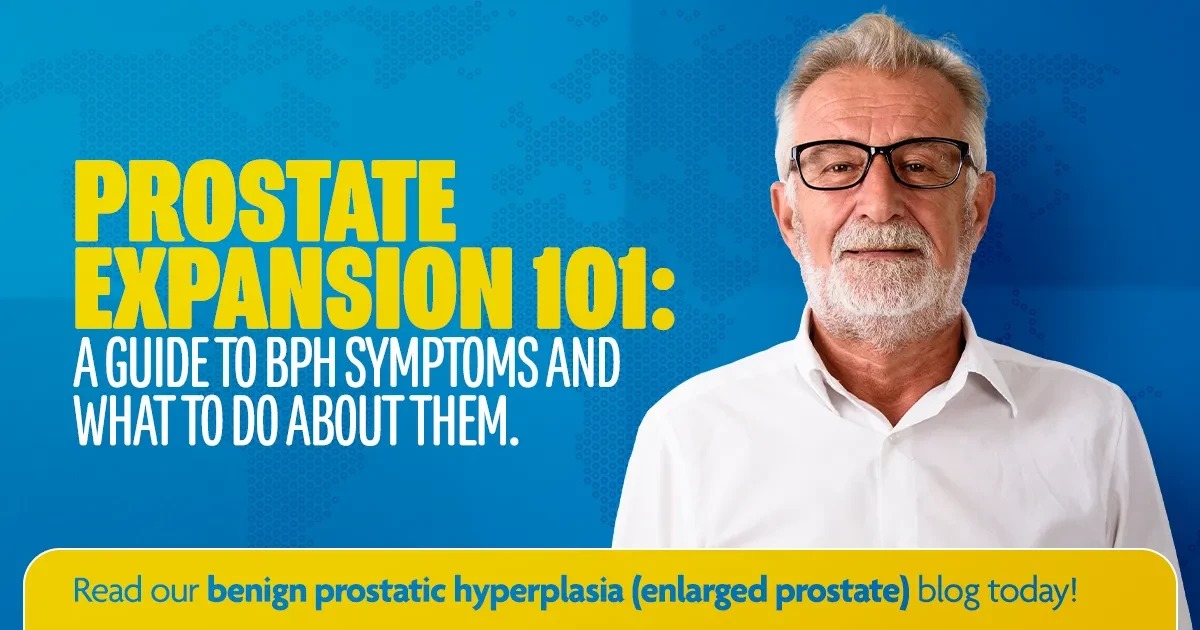Have you noticed changes in your bathroom habits lately? Are you getting up more often at night to pee? It might not just be age catching up. It could be a sign of an enlarged prostate, also known as benign prostatic hyperplasia (BPH).
Understanding the Problem:
The prostate is a small gland located just below the bladder in men. As men age, it’s common for the prostate to grow larger. While this growth is often benign (non-cancerous), it can squeeze the urethra (the tube that carries urine out of the body). This can lead to a range of bothersome symptoms that affect your quality of life.
Common Signs and Symptoms:
- Frequent Urination: Feeling the need to pee more often, both during the day and night.
- Weak Stream: Trouble starting the flow of urine or having a weak, dribbling stream.
- Urgency: A sudden, strong urge to urinate.
- Incomplete Emptying: Feeling like your bladder isn’t fully empty after urinating.
- Stopping and Starting: Urine flow that starts and stops several times.
What to Do if You Notice These Signs:
The most important thing is don’t ignore them. It can be tempting to brush off these symptoms as a normal part of aging, but it’s crucial to see a urologist. Here’s why:
- Accurate Diagnosis: Your doctor can rule out other potential causes for your symptoms and confirm whether it’s BPH.
- Early Detection: If it is BPH, early detection and treatment can help prevent complications and improve your quality of life.
- Personalized Treatment: There are various treatment options for BPH, and your doctor can help you find the right one for you.

Treatment Options:
Depending on the severity of your symptoms and the size of your prostate, treatment options might include:
- Lifestyle Changes: Reducing fluid intake before bed, avoiding caffeine and alcohol, and pelvic floor exercises (Kegels)
- Medication: Several medications can help shrink the prostate or relax the bladder neck muscles to improve urine flow.
- Minimally Invasive Procedures: These involve using heat, radio waves, or laser therapy to shrink prostate tissue.
- Surgery: In more severe cases, surgery might be recommended to remove excess prostate tissue.
Next Steps
If you’re experiencing symptoms that might be related to an enlarged prostate, don’t hesitate to reach out to one of our board-certified urologists. Early intervention is key to managing BPH and maintaining your quality of life. Visit urologyclinics.com or call (214) 580-2266 to learn more or schedule an appointment.

